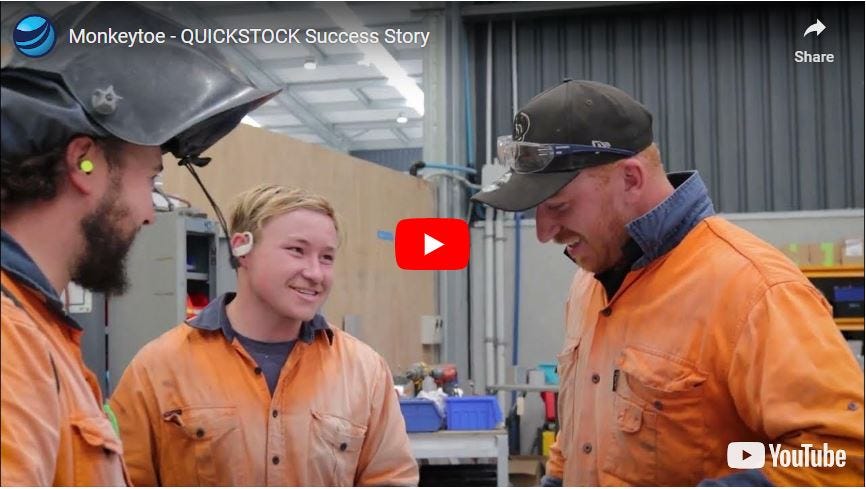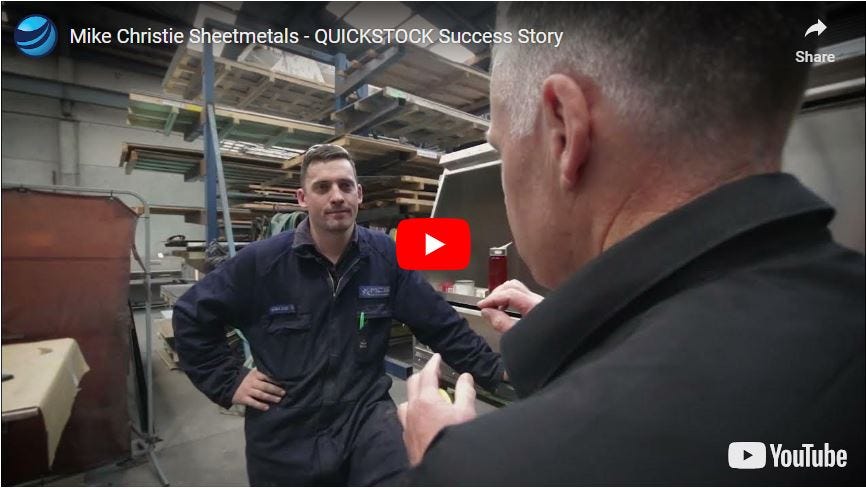5 best practices for consumable stock management
Even the best workshops need some processes in place to manage their consumable stock. By implementing some or all of these best practices, we recon you'll be able to save money, space, and boost your productivity - who wouldn't want that???


1. Choose a consumable stock supply method to suit your workshop
A lot of businesses don't realise they have options when it comes to stock supply. The way you place orders with your regular supplier becomes a habit, and an alternative method is just not something you think about. Taking advantage of the different services offered by suppliers can play a huge role in the efficiency of consumable stock handling in your workshop:
- Just-in-time ordering - why carry more stock than you need to? Save space and free up working capital by making the most of overnight/fast delivery options. This is great for workshops who order odd items for different jobs that they don't want to keep a lot of stock of, or workshops with limited space.
- Bulk ordering - if you're a larger workshop that goes through a lot of the same items, and has the space to store it - order in bulk! Larger quantities often get bigger discounts from suppliers, and those $$$ soon add up.
- Supplier managed solutions - great for workshops who don't have the resources to be tracking, monitoring, reporting, ordering, and storing consumables. Here your supplier will provide their own supply cabinet to your workshop, stock it full of your regularly used consumables so you won't run out, and you only pay for what you use. Reporting on stock is provided, and there's no need to place orders unless you require odd items. See Euromarc's QUICKSTOCK solution here.
2. Keep stock in defined locations
It sounds obvious, but it's amazing how many different places stock can be found around a workshop. This not only makes it difficult to track, but it leads to a lot of wastage both with products going missing and also additional orders being made with suppliers, or trips to the trade shop when consumables can't be found.
- Try to keep the relevant consumables located close to where the work is being done. This will reduce the need for workers to stockpile products at their station, or long walks to the store room at the other end of the workshop.
- If you have a store room, make sure there is a logical system in place for where things go. Labels are great. This makes products easier to find, helps to keep the store room tidy and keep track of items, reducing ordering mistakes and consumable stock loss.


3. Simplify your re-ordering processes
How much time do you spend working out what you need, and then placing orders every week? While you may be quite content with your ordering routine, a little change might make a big change to both your time and accuracy of what's being ordered.
- Larger workshops who use a manual stock control process may consider moving to an automated system. If set up and used correctly, an automated system will cut down a lot of time in tracking and counting consumables, and provide reports which can help with knowing what needs to be re-ordered.
- Workshops that don't quite need to go to the extent of an automated system can benefit from lean manufacturing processes such as the Kanban 2 bin system.
- Supplier managed systems take the hassle out of ordering all together, freeing up your time to spend on other important things...like getting jobs out the door. They're a great way to have stock on hand without tying up working capital, and also reducing the amount of time spent tracking and ordering regularly purchased consumables.
- When you are placing orders, find out the most efficient and effective way to place orders. Some suppliers may give preference to a certain way of ordering when it comes to processing. You can also take advantage of online 'quick ordering' or 'favourites' systems that store your frequently purchased products on one page, providing a checklist and reducing the need to search for products each time you order.
4. Keep your inventory costs to a minimum
Don't spend money where you don't have to. Find the right balance between storing enough consumable stock to keep projects going, and ordering supplies efficiently.
- As previously mentioned, workshops who go through large quantities of consumables and have room to store it, can take advantage of bulk buying discounts.
- On the other hand, if you're buying up far more than you need just to get the discount, you may like to consider if that working capital could have been better spent elsewhere. Instead, take advantage of supplier's overnight delivery promises and free up working capital and space in your workshop.
- Supplier managed solutions can give you the best of both worlds, providing all the consumable stock you need, and you're only charged for the stock used at the end of the month.
5. Quality control - choose a good supplier
Don't put up with poor quality. Your products are only as good as the tools used to make them - including your consumables. How does this relate to stock management?
- If your consumables do not have consistent quality, a lot of time and resources can be wasted when the products do not live up to their potential. Especially if this results in damage to the job.
- When the pressure is on to get the job finished, and consumables aren't available, staff tend to keep using consumables like abrasives past their best use' point. This can result in less than optimum results with your fabrication.
- If your supplier does not have good processes in place for quality control and returns, this can hold up your production while you wait for a replacement.
If you already do these 5 things - high five! Your consumable stock needs often fluctuate, and aren't always easy to keep on top of, especially with growing businesses, so well done. To those of you who may be suffering from production delays, stock loss, time wastage, and general frustration or headaches when you think about stock management - these simple practices might make a big difference in your workshop.
 Need assistance?
Need assistance?






